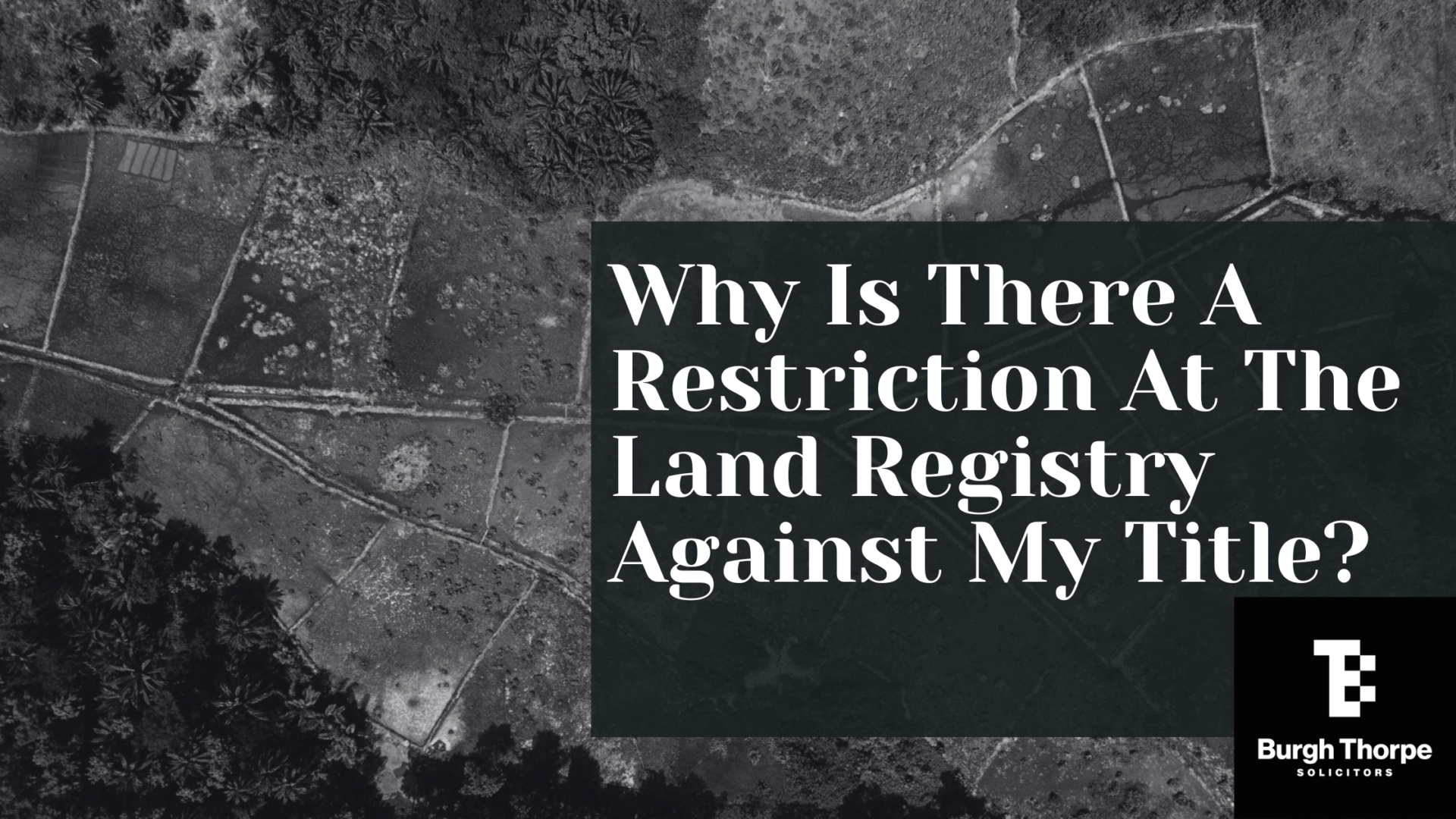Why Is There A Restriction At The Land Registry Against My Title?
Conveyancing Posted 6 April 2024Before we look at why there is a restriction at the land registry against your title, let’s look at what a restriction on a property title is. A restriction on a property title is an entry on the title deed. It prevents you from selling the property, transferring the equity of the property or getting a new mortgage on the property. You may have heard of them referred to as dispositions.
A restriction at the land registry against your title could be absolute or it could be on the condition of a specific event. For example, the specific event could be getting the consent of a third party. Any restrictions at the land registry against your title will come under Section B of the title deed.
It is possible that the registrar can enter a restriction without anyone applying for one. This will happen if it appears to the registrar that it is necessary or desirable for them to do so. This could be the case if it is done to prevent invalidity or unlawfulness in relation to dispositions of a registered estate or charge. It could also be done by the registrar to secure the interests which are capable of being overreached on a disposition. The registrar could also enter a restriction to protect a right or claim in relation to a registered estate or charge.
There are over 30 different standard form restrictions that can be registered over the legal title at the Land Registry. The most common restrictions that we come across are Mortgage Restrictions, Form A Restrictions, Form LL Restrictions and Bankruptcy Restrictions. We take a look at these types of restrictions in more details below.
- Mortgage Restriction
If a mortgage restriction is applied against your title, it means that you cannot make any disposition without the consent of your mortgage lender. A mortgage restriction will become an issue when the lender has not removed the restriction even after you have paid back the amount owing.
- Form A Restriction
A Form A Restriction is registered when joint owners buy a property as tenants in common or register as tenants in common. If you would like more details on why you might choose to register as tenants in common, please speak to our conveyancing team.
- Form LL Restriction
If you have a Form LL restriction it means that for any disposition of the property to be registered, a solicitor must conform, by certificate, that they are satisfied the person who is attempting to execute the disposition is the registered proprietor and able to make that request.
- Bankruptcy Restriction
When you are bankrupt the court will register a bankruptcy restriction over your title. This can come in various different forms and involve different dispositions and restrictions to the title of your property.
Need help with a restriction at the land registry against your title? Call our property lawyers in Peterborough now to see how we can help you.
